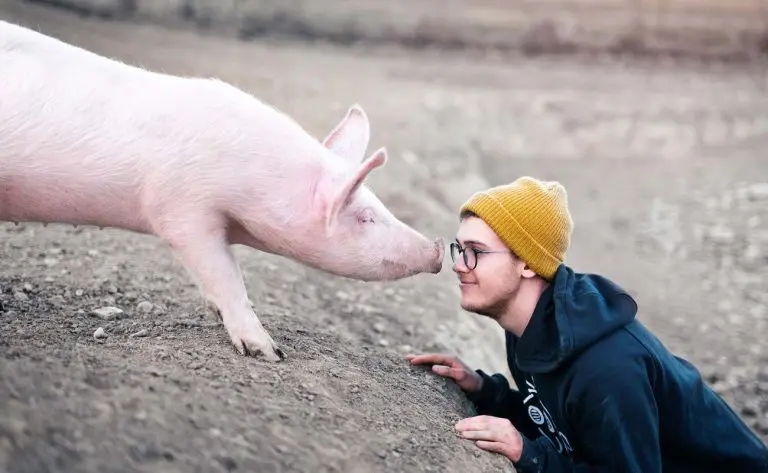Exposing the Hidden Horrors of Industrial Factory Farming: A Powerful Call to Recognize Animal Suffering, Environmental Devastation, and the Urgent Need for Compassionate Food System Change

The Hidden Cruelty of Factory Farming: A Threat to People, Animals, and Planet
Modern factory farming—encompassing meat, dairy, and egg production—is marked by intensive industrial practices that prioritize profit over welfare. The cruelty embedded in these systems extends its harm not only to animals, but also to human health and the environment.
1. Animal Suffering on an Industrial Scale ��
Factory farms confine countless animals in tightly packed spaces, eliminating any chance for natural movement or behavior. Chickens are kept in battery cages, unable to spread their wings. Pigs live in gestation crates so restrictive they can't even turn around, and dairy cows are often stalled in cramped stalls designed for mechanical milking
This constant confinement leads to both physical suffering—joint pain, stunted growth, infections—and severe mental distress. Behaviors such as tail biting in pigs or feather pecking in chickens signal stress and frustration. Additionally, routine mutilations without anesthesia, such as beak-trimming in poultry and tail docking in pigs, create unnecessary suffering
2. Animal Cruelty’s Ripple Effects on Humans
Humane Foundation (Bengali site) highlights how factory dairy and poultry farming impact human health. Chronic overcrowding and unsanitary conditions facilitate the spread of bacteria like E. coli and Salmonella, increasing foodborne illnesses . Overuse of antibiotics and growth hormones in animals—a standard in factory farms—leads to antibiotic-resistant “superbugs” that threaten public health, making infections hard to treat
3. Environmental Degradation
Factory farms are environmental calamities in disguise. Accumulated animal waste contaminates soil and waterways, elevating nitrogen and chemical runoff and causing algae blooms. Intensive water use, deforestation for feed crops, and massive greenhouse-gas emissions magnify their ecological footprint.
Livestock methane, nitrous oxide, and carbon emissions contribute significantly to climate change—one of agriculture’s gravest threats .
4. Factory Farming: A Snapshot of Bengali Article’s Highlights
The Bengali article “কারখানার চাষ” outlines several intertwined issues:
Human Health Risks: Pathogen spread via unsanitary conditions and antibiotic resistance from overmedicated livestock
Nutritional Concerns: High saturated fat in dairy products fosters cardiovascular issues
Animal Welfare Violations: Confinement, stress, and routine harm are systemic in factory farms
Environmental Harm: Waste pollution, resource depletion, and greenhouse gases all feature prominently .
5. Seeking Humane Alternatives
The underlying message is clear: moving away from factory farming is essential—for animal welfare, human health, and environmental stability.
Alternative approaches include:
Pasture-Raised and Free-Range Systems: Animals with access to outdoors and space to move experience better health and lower stress
Plant-Based and Lab-Grown Proteins: Offering cruelty-free, resource-efficient options that reduce dependency on industrial farms
Supporting Sustainable, Small-Scale Farms: By choosing cruelty-aware products, consumers can incentivize more ethical practices
6. How Individuals Can Take Action
Consumers wield real power. Simple steps include:
Choosing products labeled free-range, pasture-raised, or organic.
Reducing overall meat and dairy consumption.
Embracing plant-rich diets, including whole foods and varied nutrition.
Supporting farm-freedom legislation and campaigns that prioritize welfare and sustainability.
Spreading awareness among friends and family about the hidden costs of cheap meat and dairy.
Conclusion
The Bengali article on cruelty.farm conveys a powerful, timely message: factory farming is not just an industry—it’s a crisis affecting animal lives, public health, and planetary well-being. Yet, solutions are within reach. Through better farming practices, ethical consumer choices, and sustainable alternatives, we can reduce cruelty, improve ecosystems, and foster a healthier future for all.
- Art
- Causes
- Crafts
- Dance
- Drinks
- Film
- Fitness
- Food
- Jogos
- Gardening
- Health
- Início
- Literature
- Music
- Networking
- Outro
- Party
- Religion
- Shopping
- Sports
- Theater
- Wellness


